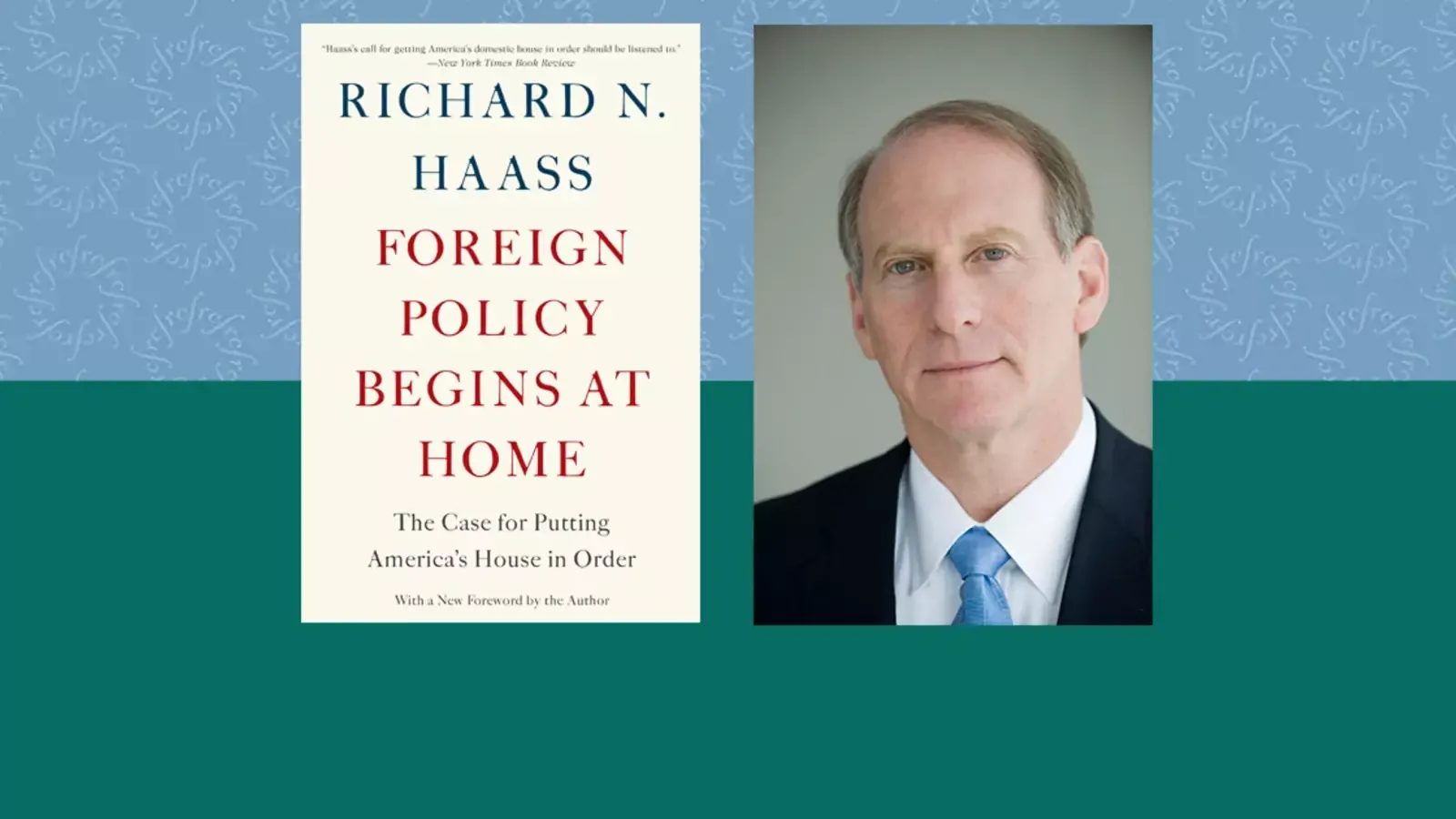Foreign Policy Begins at Home

Introduction
In this book, CFR President Richard N. Haass puts forward a new foreign policy doctrine of Restoration, in which the United States limits its engagement in wars of choice and humanitarian interventions abroad and focuses on restoring the foundations of its power at home. Teaching notes by the author.
Summary
These Teaching Notes, by CFR President Richard N. Haass, feature discussion questions, essay questions, activities, and additional materials for educators to supplement the use of Dr. Haass's book Foreign Policy Begins at Home in the classroom. In this book, Dr. Haass argues that the biggest threat to the security and prosperity of the United States comes not from abroad but from within. He puts forward a new foreign policy doctrine of Restoration, in which the United States limits its engagement in wars of choice and humanitarian interventions abroad and focuses on restoring the foundations of its power at home.
Essay and Discussion Questions
Courses on U.S. Foreign Policy, Strategy, and National Security
- What is grand strategy? How does it differ from national security and/or foreign policy? Why is it important?
- What do you think should constitute U.S. grand strategy?
- Do you believe that American leadership is essential for global order?
- What is the significance for U.S. foreign policy of the "strategic respite"? Does it even exist?
- What is, or what ought to be, U.S. policy towards the Middle East? What principles or interests should drive policy?
- What is, or what ought to be, U.S. policy towards China?
- What role or roles might exist for traditional allies and partners in modern American foreign policy?
- Is it necessary for U.S. foreign policy to be guided by a doctrine?
- Discuss the doctrines introduced in Part II ("Restoration Abroad"). What are their pros and cons? What would constitute your ideal U.S. foreign policy doctrine?
- What are the consequences for American foreign policy of the dramatic expansion of domestic sources of energy in the United States?
Courses on International Relations
- What are the primary features of the contemporary international system? What are the consequences of those features for the United States?
- Describe the shifts of power and influence that have taken place since the end of the Cold War.
- Do you agree that there is a "global gap" between what the international community promises and what it delivers? What, if anything, can the international community do to narrow the gap or ameliorate its consequences?
- What are the sources of and challenges to U.S. primacy?
- What are some of the challenges China is likely to face in the coming decades? How might they affect China's interactions with its neighbors and the rest of the world?
- Is China — or any other country — likely to become a great power rival to the United States? Why or why not?
- Assess the causes and consequences of Europe's changing role in international relations, especially since the Second World War.
- How might recent political movements or upheavals in the Middle East affect the foreign policies of the countries in the region? Give specific examples.
- What is your understanding of the phrase "global order"?
- Is there an "international community"? Explain your reasoning.
Courses on U.S. Government and Politics
- What are the primary challenges to U.S. economic strength?
- What is the relationship between U.S. domestic policy and America's role in the world?
- How might the present political gridlock interfere with America's ability to resolve domestic problems? What can be done to fix the U.S. system?
- Part III of the book (Restoration at Home) outlines seven policy areas that contribute to U.S. strength abroad. Do you agree with those choices? Are there others that might be appropriate? Why?
Supplementary Materials
Bacevich, Andrew. The Limits of Power: The End of American Exceptionalism. New York: Henry Holt and Company: 2008.
Bremmer, Ian. Every Nation for Itself: Winners and Losers in a G-Zero World. London: Penguin Group, 2012.
Brzezinski, Zbigniew. Strategic Vision; America and the Crisis of Global Power. New York: Basic Books, 2012.
Friedman, George. The Next 100 Years: A Forecast for the 21st Century. Anchor Books: New York, 2010.
Kagan, Robert. The World America Made. New York: Alfred A. Knopf, 2013.
Kaplan, Robert. The Revenge of Geography: What the Map Tells Us About Coming Conflicts and the Battle Against Fate. New York: Random House, 2012.
Kupchan, Charles. No One's World: The West, the Rising Rest, and the Coming Global Turn. New York: Oxford University Press, 2012.
Nye, Joseph. The Future of Power. New York: PublicAffairs, 2011.
Zakaria, Fareed. The Post American World and the Rise of the Rest. London: Penguin Group, 2009.